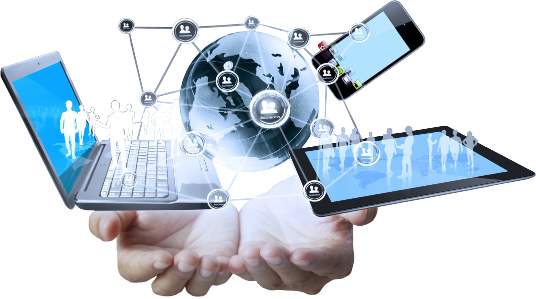Hey tech enthusiasts! Buckle up as we dive into the exciting realm of software development and explore the cutting-edge technologies that are set to redefine the next decade. Whether you’re a seasoned developer or just curious about the future, there’s plenty to uncover about where software is headed.
The Ever-Evolving World of Software Development
Software development isn’t just about writing code anymore—it’s about embracing innovation and staying ahead of the curve. In today’s fast-paced digital landscape, keeping up with emerging technologies is key to unlocking new possibilities and staying competitive.
Artificial Intelligence: Coding with a Brain
First up, let’s talk AI. Artificial Intelligence is no longer science fiction; it’s transforming how we develop software. Imagine algorithms that learn from data, automate repetitive tasks, and even suggest code optimizations. Tools like GitHub Copilot are already demonstrating AI’s potential to enhance developer productivity by providing intelligent code suggestions based on context.
Quantum Computing: Unlocking Unthinkable Possibilities
Now, buckle your seatbelts for quantum computing. Unlike traditional computers that use bits, quantum computers use qubits. This allows them to process vast amounts of data simultaneously and solve complex problems that are beyond the reach of classical computers. Companies like Google and IBM are already exploring quantum algorithms for applications ranging from cryptography to optimizing supply chains.
Blockchain: Beyond Bitcoin
Blockchain isn’t just about cryptocurrencies like Bitcoin anymore. It’s revolutionizing software development with its ability to create tamper-proof, transparent, and decentralized applications. Imagine secure voting systems, digital identities, and supply chain tracking—all made possible by blockchain’s immutable ledger technology. Industries from finance to healthcare are adopting blockchain for enhanced security and efficiency.
Edge Computing: Bringing Power Closer
Ever experienced lag while streaming or gaming? Edge computing aims to solve that by processing data closer to where it’s generated, reducing latency and improving user experience. From smart cities monitoring traffic in real-time to autonomous vehicles making split-second decisions, edge computing is paving the way for faster, smarter applications.
5G: Supercharging Connectivity
Enter 5G—the fifth generation of mobile networks. With its lightning-fast speeds and low latency, 5G is set to revolutionize how we interact with software. Think seamless augmented reality experiences, real-time data analytics, and ultra-responsive IoT devices. As 5G networks expand globally, expect a wave of innovative software solutions that capitalize on its capabilities.
Augmented Reality and Virtual Reality: Beyond Gaming
AR and VR aren’t just for gaming anymore. These technologies are reshaping how we interact with software interfaces, from immersive training simulations for professionals to virtual tours for real estate. Imagine architects visualizing buildings before construction or surgeons practicing procedures in a virtual environment—AR and VR are making it possible.
Low-Code/No-Code Development: Everyone Can Code
You don’t need to be a coding genius to develop software anymore. Low-code and no-code platforms empower users with varying technical skills to build applications rapidly. From business analysts creating workflow apps to educators developing educational tools, these platforms democratize software development and accelerate digital transformation.
Cybersecurity: Protecting the Digital Frontier
As software becomes more interconnected, cybersecurity is paramount. Advanced technologies like AI-driven threat detection and blockchain-based encryption are bolstering defenses against cyber threats. Innovations in cybersecurity ensure that software remains secure and resilient against evolving risks.
Ethical AI and Responsible Development
With great power comes great responsibility. Ethical AI practices ensure that technologies like AI are developed and deployed responsibly, without biases or unintended consequences. Initiatives and frameworks promote transparency, fairness, and accountability in AI systems, fostering trust and ethical standards in software development.
Integration and Interoperability: Making Tech Play Nice
Lastly, integrating these technologies seamlessly is crucial. Interoperability ensures that new software solutions work harmoniously with existing systems, enhancing functionality and user experience. Strategies for smooth integration empower developers to innovate without disrupting operations.
Conclusion: Embracing the Future
In conclusion, the future of software development is bright and brimming with possibilities. By embracing these emerging technologies—from AI and quantum computing to blockchain and 5G—developers can create transformative software solutions that drive innovation and shape our digital future. So, gear up, stay curious, and get ready to code the future!
